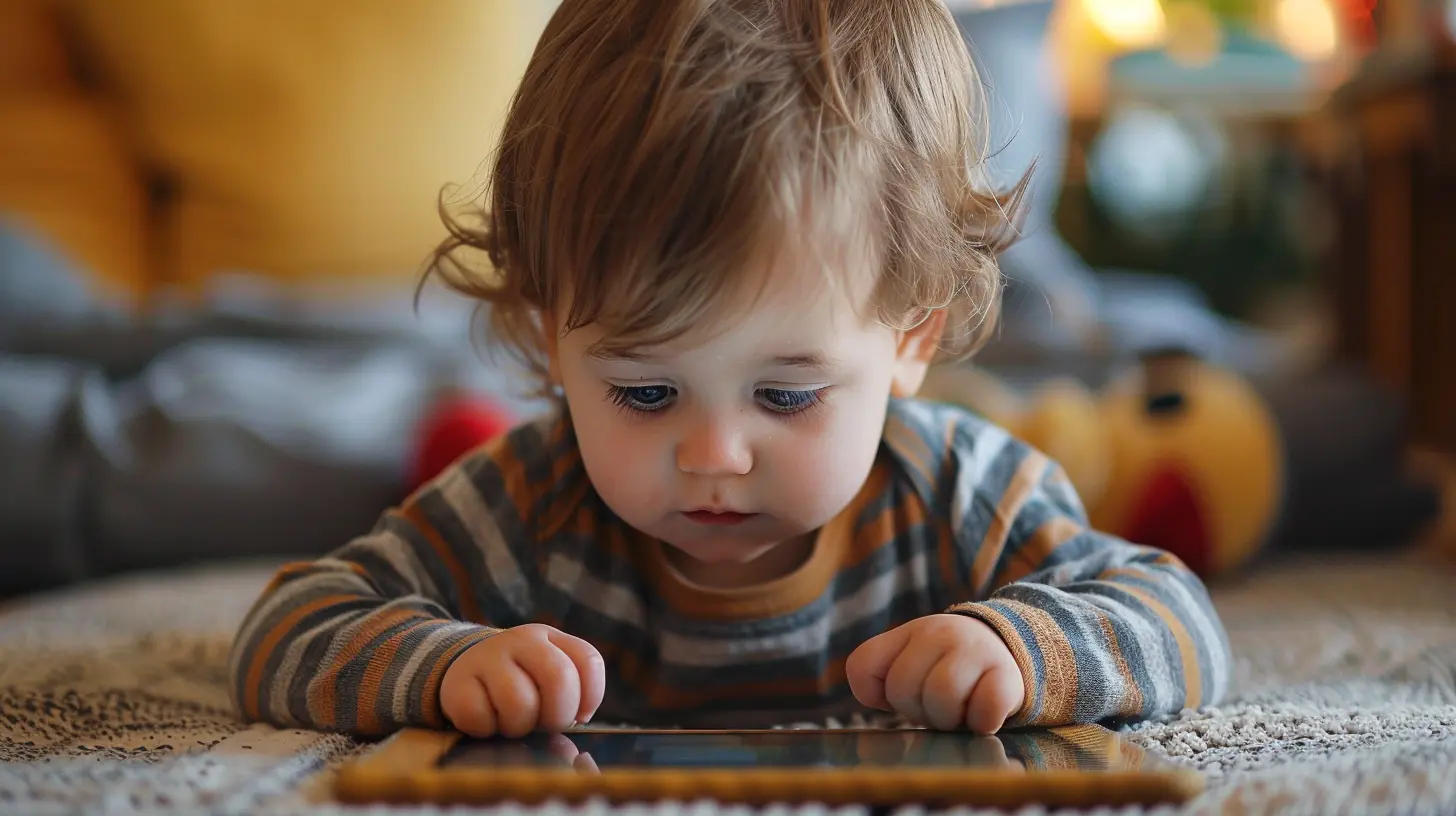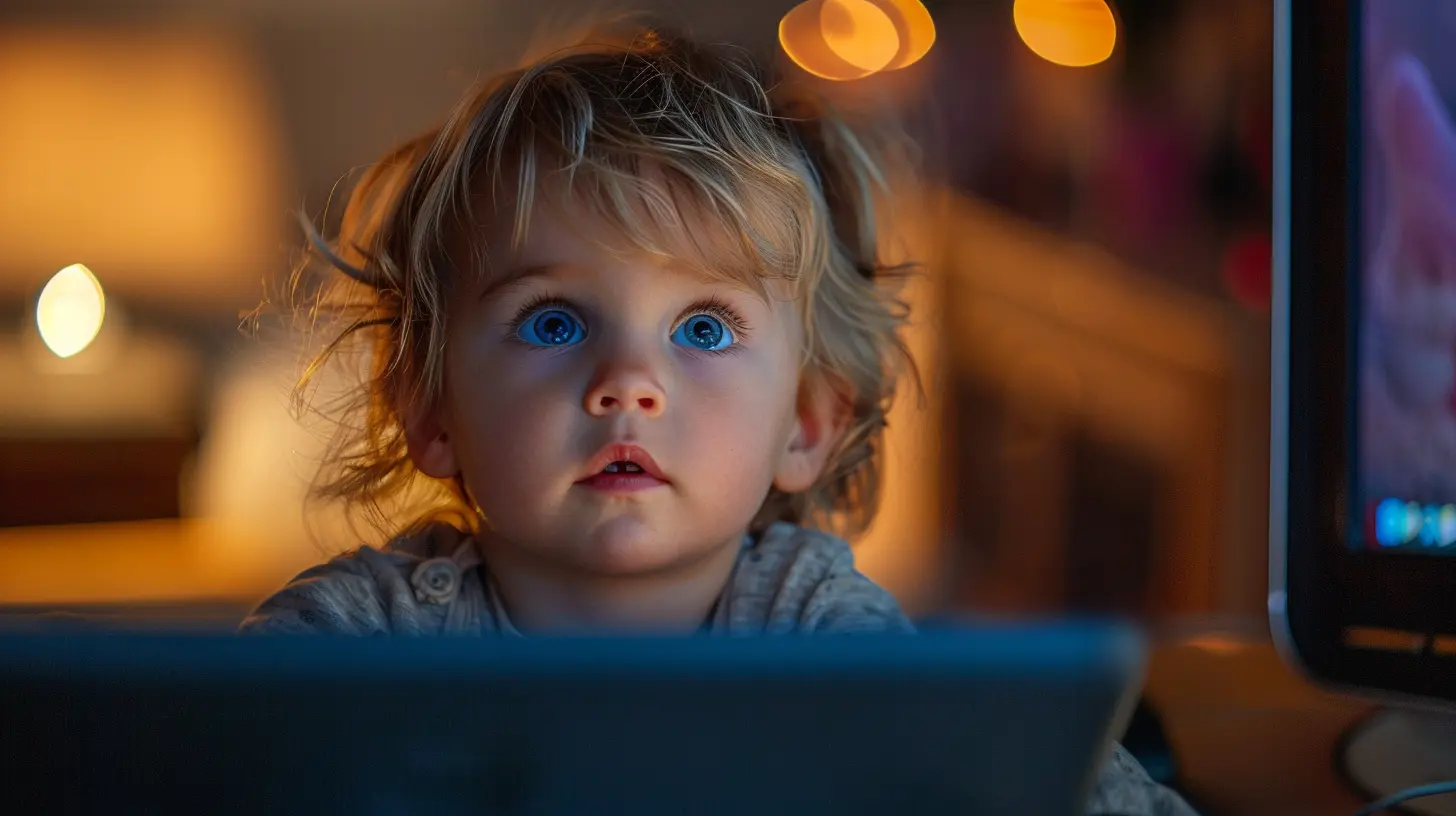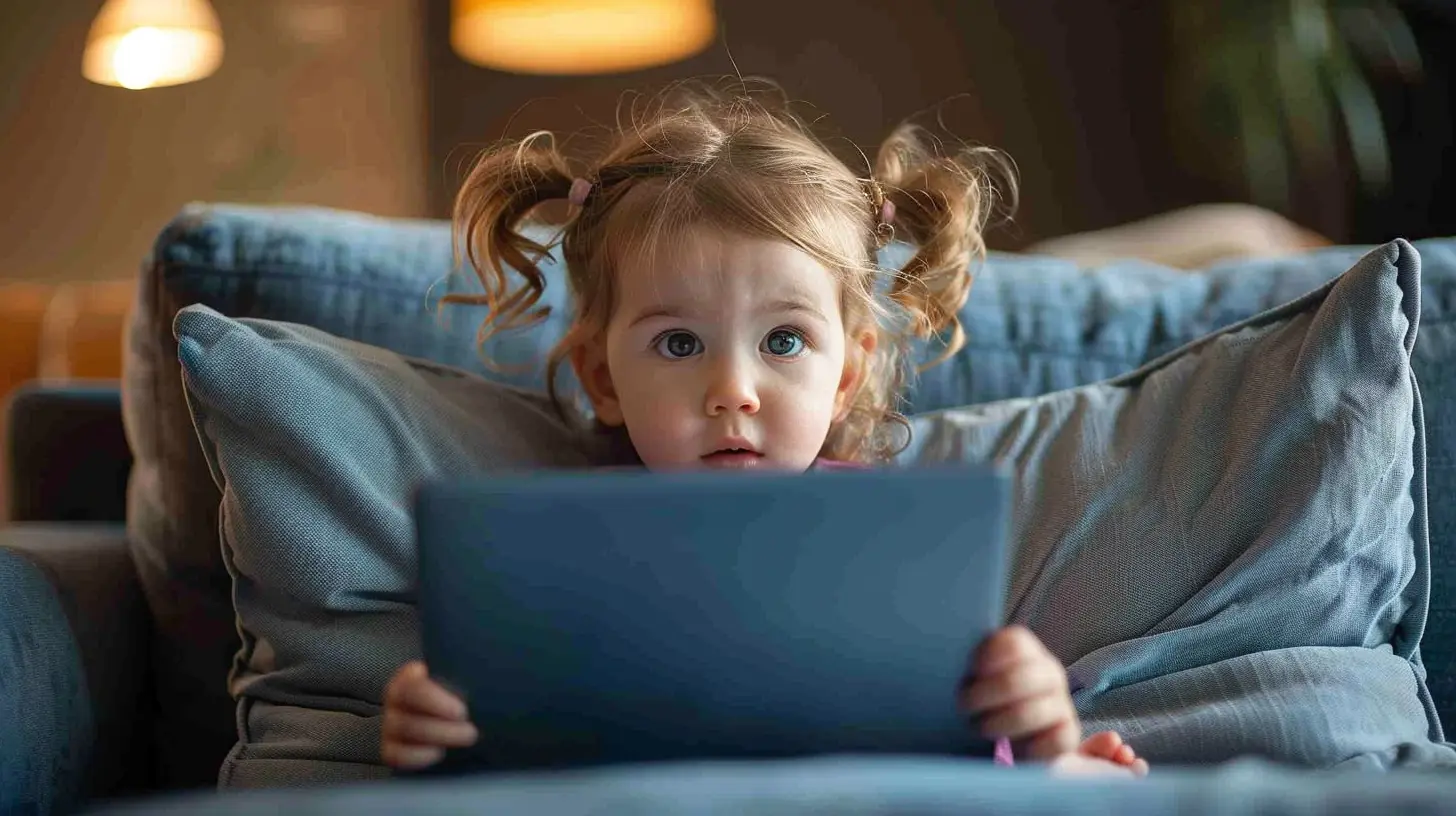The Impact of Screen Time on Toddler Tantrum Frequency
7 August 2025
Let’s be real for a second—toddlers are tiny tornadoes of mood swings, sticky fingers, and the occasional full-blown meltdown in the middle of Target. We’ve all been there—red-faced, flustered, and wondering what demon just possessed our sweet little angel. Now, sprinkle in some screen time, and you might have just added fuel to the tantrum fire.
So, how much of your toddler’s epic screamfest is related to cartoons, tablets, or your phone playing baby shark 47 times a day? Buckle up, because we’re about to dive into the juicy truth behind the screen time + tantrum connection. Spoiler alert: it’s more than just a coincidence.

What Counts As Screen Time, Anyway?
Before we go blaming Peppa Pig for everything, let’s break down what we actually mean by "screen time." In toddler terms, it includes:- Watching TV (yes, even “educational” shows)
- Playing games on tablets or phones
- Video chatting (yep, even with Grandma)
- Touching anything with a glowing screen that sings
Basically, if your toddler is glued to something that plugs in or needs charging, it’s screen time.

The Normal Toddler Tantrum: A Crash Course
Tantrums are part of the toddler starter pack. You get diapers, tiny shoes, and an unpredictable volcano of emotions. Why? Because toddlers are learning how to navigate a big world with small vocabularies and ginormous feelings. When they can’t express themselves, guess what? Cue the meltdown.Some tantrums are totally normal. Lack of sleep, hunger, overstimulation—these are classic triggers. But when screen time enters the chat, things can go from zero to “Why is she throwing yogurt at the cat?” way too fast.

So... Does Screen Time Actually Make Tantrums Worse?
Oh honey, buckle up. Yes, it absolutely can. Here’s why:1. Instant Gratification = Zero Patience
Screens give toddlers exactly what they want, when they want it—colorful lights, catchy songs, dancing blobs. But when the iPad’s off and the real world has, gasp, delays and boundaries, their little brains can't compute. It’s like driving a Ferrari and suddenly being told you have to walk. Cue meltdown.2. Overstimulation Overload
The fast visuals, music, and changing scenes light up their wee brains like a Christmas tree. It’s a sensory free-for-all that leaves them amped up. When screen time ends, they crash—and not quietly. Imagine someone blasting caffeine into a squirrel, then telling it to sit quietly. That’s your toddler after too much screen time.3. Screens Hijack Emotional Development
Toddlers need to interact with real humans to learn empathy, patience, and how to manage their emotions. Plopping them in front of CocoMelon every time they’re cranky? That’s like giving a thirsty plant soda. It works fast, but it ain’t healthy. Over time, they get worse at processing feelings without a screen to distract them.4. Screens Block Sleep, and Sleep Is Tantrum Kryptonite
Screen time before bed messes with melatonin, the brain’s sleepytime hormone. Less melatonin = less sleep = more cranky. And when toddlers sleep poorly, their tolerance for anything drops to below zero. Even the wrong color cup can cause World War III.
But My Kid Calms Down With a Screen…
Totally. That’s the point. It’s so easy. But easy doesn’t always mean effective in the long run. Screens soothe in the short term, but they don’t solve the root problem. It’s like putting a band-aid on a broken pipe. Looks okay for a second—until everything explodes again.The Science Backs It Up
It’s not just parental instinct. Studies (and we’re not talking “Facebook mom groups” kind of studies) have shown a direct link between higher screen time and increased behavioral issues in toddlers—including [drumroll, please] more frequent tantrums.Here’s the spicy science bit:
- A report in JAMA Pediatrics found that kids with more screen time had delays in developing necessary life skills, including emotional regulation.
- Another study from the University of Michigan showed that toddlers who used mobile devices often were more likely to struggle with managing their emotions.
- Researchers also found that screen-heavy toddlers had more frequent and intense tantrums when the screens were taken away. We’re talking DEFCON 1 meltdown mode.
How Much Screen Time Is Too Much?
The American Academy of Pediatrics says for kiddos aged 2-5, screen time should be limited to one hour per day of high-quality programming, co-watched with a parent. But let’s be honest, that’s not always happening, right?Y’all, between virtual playdates, FaceTime with the cousins, or just needing five minutes to pee in peace—it adds up. And fast.
The key isn’t to eliminate screen time altogether (because, sanity), but to be intentional about it.
How To Reduce The Tantrum-Time Tied To Screens
Let’s flip the script. Here are some screen-smart strategies that don’t end in a sob-fest:1. Set Clear Limits—and Stick to Them
Toddlers thrive on routine and predictability. If screen time is a free-for-all, they’ll push. Set a time—after lunch, before nap, whatever works—and make it consistent. Use timers if needed. And yes, they will protest at first like you just told them cookies are illegal. Stay strong.2. Avoid Screens Before Bedtime
Seriously, just don’t. Try books, snuggles, or quiet play instead. Trust me—future you (and your kid’s sleep) will thank you.3. Watch With Them (No, Really)
Co-viewing programs means you can talk about what they’re seeing, help them make connections, and keep the experience social. Think of it like teaching your toddler how to consume media responsibly, not just zoning out together like two tired sloths on the couch.4. Replace Screen Time With “Green Time”
Time outside in nature resets those wild little brains. It regulates emotions, boosts mood, and wears them out in the best way. Bonus? It doesn’t cost a dime, and there’s nothing like good ol’ fashioned mud and sticks to calm a kid down.5. Teach Them How to Handle Big Feelings
Instead of silencing a tantrum with a screen, give your child tools to feel their feelings. Name the emotion, validate it (“You’re mad because we aren’t watching more videos. I get it.”), and redirect.Is it magical? No. But over time, they learn that feelings aren’t scary—and they don’t need a screen to make them disappear.
The Tantrum Detox: What to Expect
Cutting back on screen time might feel like ripping off a band-aid… from a hairy leg. The first few days? They might up their tantrum game. That’s normal. They’re adjusting. Ride the wave, stay consistent, and don’t cave.After a week or two, you’ll probably notice fewer meltdowns, better engagement, and maybe even more snuggles. Not bad, right?
Okay, But Is All Screen Time Evil?
Nah. Let’s not go full “screens are the devil” here. High-quality programming, interactive games, and educational apps have their place—especially when used sparingly and wisely.The goal isn’t restriction; it’s balance. We want kids who can enjoy a screen without needing one to function.
Final Thoughts: You’ve Got This, Mama (or Papa!)
Parenting in the 21st century is no joke. Screens are everywhere, and nobody expects you to be a screen-free saint. But knowing how screen time affects your toddler’s tantrums? That’s power, baby.Use this info to tweak your routine, set some boundaries, and take back your peace (and maybe your phone). Your toddler doesn’t need 24/7 Bluey—they need you, and your undivided, real-life energy. Even if it’s messy. Even if there are still tantrums.
Because here’s the deal: tantrums will happen. But adding more screen time won’t fix them—it’ll just press pause. Let’s raise emotionally intelligent, balanced kiddos who can ride their emotional waves—with or without a glowing screen.
You in?
all images in this post were generated using AI tools
Category:
Tantrum TipsAuthor:

Maya Underwood
Discussion
rate this article
1 comments
Craig McVeigh
Empower mindful screen habits for happier, calmer toddlers today!
August 20, 2025 at 2:53 PM

Maya Underwood
Absolutely! Mindful screen habits can significantly reduce tantrums by promoting emotional regulation and better focus.


